The Sub-Saharan Security Review
23 September - 30 September
Weekly Summary:
There have been further reports of warming ties between the US and governments in the central Sahel, with Mali and Niger said to be considering security assistance from Washington.
To mark three years in power, Burkinabe leader Ibrahim Traore addressed his nation. He highlighted the improvements he has made to the armed forces, though only days prior jihadists in the country showcased their own ongoing offensive evolution.
Ethiopia reiterated its desire to reclaim the Port of Assab and gain sea access. A move to achieve this aim could ignite a conflict with Eritrea, a scenario the US is reportedly working to avoid. Meanwhile, rebels in the Amhara region recorded a series of major victories against government forces.
The battle for el-Fasher continued. The SAF is embarking on a major push to break the RSF’s siege, yet remains some distance away. Meanwhile, international observers have raised alarm over the unchecked proliferation of high-tech weaponry, which they fear one day could fall into the wrong hands.
Protests over water and power shortages erupted in Madagascar. Over 20 have been killed in subsequent violence, while the president dissolved his government to try and reduce tensions.
Signs of Rapprochement between Sahelian Governments and the US
Having undergone a major transformation in recent years, foreign relations in the central Sahel now appear to be entering a new era. On 29 September, The Wall Street Journal claimed the governments of Mali, Burkina Faso, and Niger are experiencing “buyer’s remorse,” after deepening ties with Russia, which has failed to help them curb worsening insecurity, with the US emerging as a viable security partner once again.
The article was published only two weeks after a report emerged claiming that Washington had recently increased its intelligence sharing with Mali, providing clarity on vague news earlier this summer that the Malian government was seeking to improve its security cooperation with the US.
As highlighted by these separate reports, Mali is showing the keenest of interest in US security assistance. The provision of training is reportedly the most likely form that additional cooperation would take between the two. However, such a deal would potentially it outsourced to a third country such as Morocco or to a private security outfit such as Vectus Global, led by Erik Prince, whose former company Blackwater played a central yet highly contentious role in US’ war efforts in Iraq.
And it appears that Niger is also seeking to warm ties with the US, with reports surfacing that the US commander of the Special Operations Command for Africa paid a visit to Niamey on 24 September. Although few details about the visit have been disclosed, the choice of envoy and a US statement that it “looks forward to working with Niger to continue advancing shared security” offers some telling clues as to the point of discussion.
Burkina Faso seems unlikely to follow the path of its neighbours, at least publicly, as leader Ibrahim Traore stated on Sunday that “if you let your forces be trained by other powers, they put what they want into their heads.” Regardless of whether Burkina Faso follows its neighbours’ suit, it seems the mood is shifting in the Sahel. While some in the West may be quick to label this a Russian failure, Moscow is likely to remain an influential force, raising the prospect of interesting mixture of actors potentially working alongside each other in the region.
Traore Highlights Military Evolution Amid New Militant Threats
Early in the morning of 30 September 2022, gunshots echoed through the streets of Ouagadougou. They marked the beginning of Burkina Faso’s second coup d’etat in less than a year, this time led by current leader Captain Ibrahim Traore. Traore took power as a relatively unknown officer, yet within three years he has become a globally recognised figure.
His outspoken views on sovereignty, pan-Africanism, and anti-imperialism have made him a popular figure both at home and abroad. This rhetoric has often been used by the young leader to explain the causes behind Burkina Faso’s acute levels of violence, which he has made little progress in reducing despite his promises.
To mark a turbulent three years in power - characterised by unprecedented terrorist attacks, attempted coups, and authoritarian tendencies - Traore took to national television on 28 September to give a 90-minute address. He spoke extensively about the country’s security challenges, asserting that when he took power, the situation was “catastrophic”. According to the president, the armed forces had “less than 100,000 Kalashnikov cartridges and barely a hundred weapons.”
While these figures are almost certainly exaggerated, they should not detract from the efforts the leader has made to improve the armed forces’ equipment and recruitment. Traore made a promise that new weapons, equipment, and initiatives will soon be unveiled, including “a black albino,” without elaborating further.
Despite Traore’s military reforms, Burkina Faso remains in a perilous position. While his armed forces may now be better equipped, so too are the jihadists they face. On 23 September, footage emerged of a complex attack against a military supply convoy 30km south of Djibo. Having harassed the convoy as it drew closer to the besieged city, JNIM then launched a deadly attack using mortars and drones, demonstrating a previously unseen capacity to coordinate and conduct indirect fire attacks.
Videos of the attack showed scenes and tactics that would not look out of place in conflicts such as the one between Russia and Ukraine. JNIM’s violence in Burkina Faso has decreased in recent months, but is likely to resume sooner rather than later, potentially including some of these new strategies, which would add a new, unknown dimension to the fighting.
Ethiopia Reiterates Desire for Sea Access, Rebels Claim Major Victories
Signs that landlocked Ethiopia is intent on securing sea access have continued to surface in recent months. These indications have not been particularly subtle, nor have they originated from dubious sources - they have come directly from the highest levels of the Ethiopian establishment.
Ethiopia’s Prime Minister Abiy Ahmed has frequently described obtaining sea access as an existential issue; he stated earlier this month that it is only a matter of time before his country regains control of the Port of Assab, which it lost when Eritrea gained independence in 1991.
In a statement on 27 September, the Ethiopian military publicly declared its support for the government’s stance, stating that the country’s lack of sea access has tarnished its honour and hindered its geopolitical ambitions. Eager to capitalise on the wave of optimism and national pride brought about by the recent inauguration of the Grand Ethiopian Renaissance Dam, achieved “through the sacrifice of our generation,” the statement asserted there is “no reason why the Red Sea issue should not also be realized.”
While there is little doubt that Ethiopia’s rhetoric carries strategic intent, its ambitions to embark on another push to transform its geopolitical standing may be constrained by the US. Last week Africa Intelligence reported that the Trump administration, which has recently been in discussions with Eritrea to significantly improve on their limited relationship, is eager to prevent further conflict and insecurity in the Horn of Africa and the Red Sea. Ethiopia’s latest statement suggests that avoiding these worst-case scenario fears may demand significant diplomatic bandwidth.
Aside from providing an opportunity to achieve a longstanding aim, a conflict with Eritrea over access to the Red Sea would also provide the Ethiopian government a useful opportunity to distract from its domestic struggles. On 25 September, Fano, a coalition of ethno-nationalist militias based in the Amhara region, claimed that it had killed over 400 Ethiopian soldiers and captured hundreds more in a recent series of offensive operations. Fano has been battling the government since 2023 and proven a formidable foe - one that is unlikely to relent anytime soon.
Sieges, Sophisticated Weapons, and Stalled Progress in Sudan
The brutality of the RSF’s grinding push to seize control of el-Fasher, the capital and the SAF’s last remaining stronghold in Darfur, has drawn increasing amounts of international attention over the past week. As the city’s defenders hang on to prevent it from falling into RSF hands, the SAF and allied forces have continued to advance along several fronts to the west of el-Fasher in Kordofan, reclaiming territory in the process. Despite some recent victories, RSF resistance is likely to stiffen as the SAF advances toward the besieged city, casting doubt on the feasibility of its objectives.
The international community’s inability to prevent the horrors unfolding in Sudan continues to face scrutiny as the battle for el-fasher persists at a devastating tempo. However, Justin Lynch, the managing director of Conflict Insights Group, told journalists that the unchecked proliferation of high-tech weapons throughout the conflict also means “American and European leaders are going to regret their inaction on Sudan”. The warning appeared in an article published by The Washington Post on 30 September, detailing how both sides have become increasingly well-equipped since the onset of fighting.
The reporting noted that observers are particularly concerned over the sophistication and prevalence of anti-aircraft weaponry, especially in the hands of the RSF, which has recently used them to down military drones flying at high-altitude. Indications that the Houthis, who have used drones with devastating effect in recent years, may be supplying the paramilitary group with unmanned aircraft have also raised alarm. As the costs of the protracted conflict continue to manifest in new and dangerous ways, the stakes for Sudan and the wider world seem to grow more intense, yet a cessation of hostilities still seems distant.
Protests Erupt in Madagascar
On 25 September, thousands of people took to the streets in Madagascar in protest against electricity cuts and water shortages. Living in one of the countries at the bottom of the UN Human Development Index, these issues are some of the many Madagascar’s population has to contend with on a regular basis. Just over a third of the country’s population has access to electricity, yet these supplies are notoriously unreliable. The protests reportedly erupted after the state-owned electric and water provider was suspended from Facebook, the platform it used to inform citizens of daily planned outages.
This seemingly random and unexplained occurrence triggered mounting discontent, particularly amongst the youth population, over other issues such as unemployment, leading to days of unrest across the country. According to the latest estimates, at least 22 people have been killed and over 100 wounded since the protests began last Thursday. Among the dead are protesters and bystanders shot by security forces, along with others who lost their lives in the widespread looting and violence that followed, carried out by individuals and gangs unconnected to the demonstrations.
The sudden turn of events has sent shockwaves through the country’s political leadership. On 29 September, Madagascar President Andry Rajoelina announced he was dissolving the government, acknowledging and apologising for the failures of his ministers, but stopping short of accepting personal blame. The Malagasy leader also called for protesters to engage in dialogue with authorities, yet with some waving Nepalese flags, where the prime minister was recently forced to resign following youth-led demonstrations, young activists may be hoping for a different outcome.


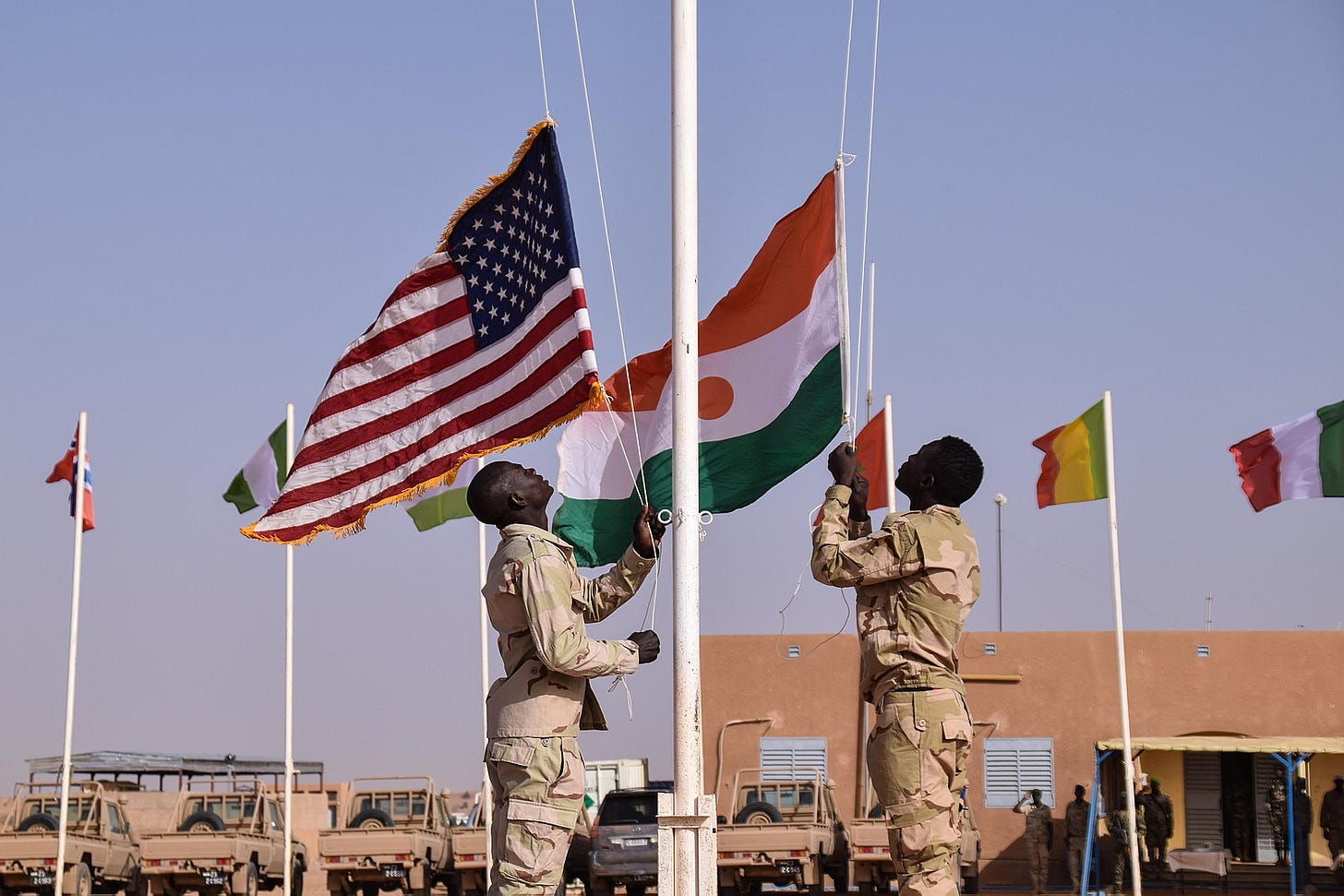
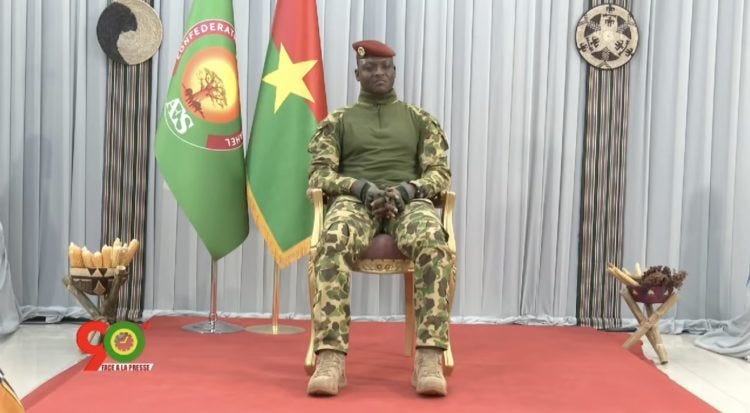
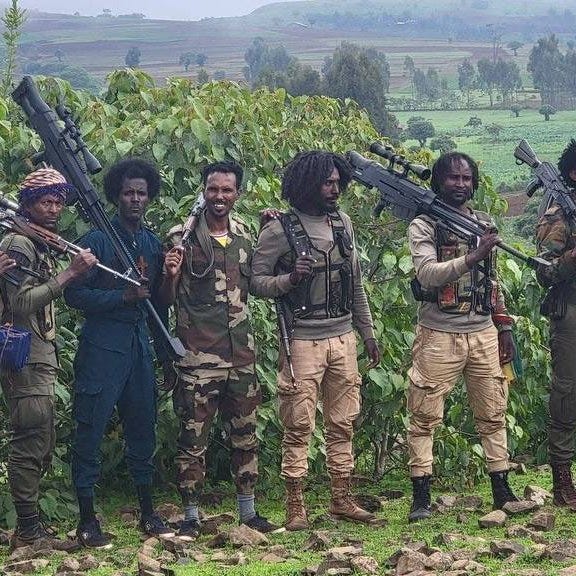
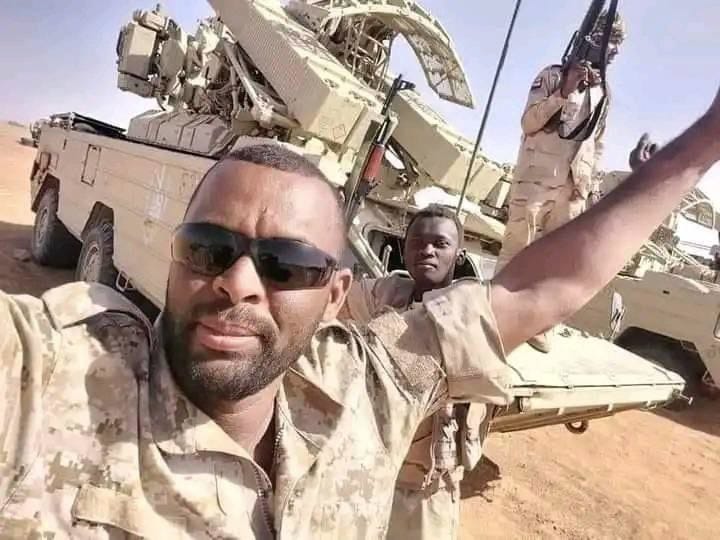
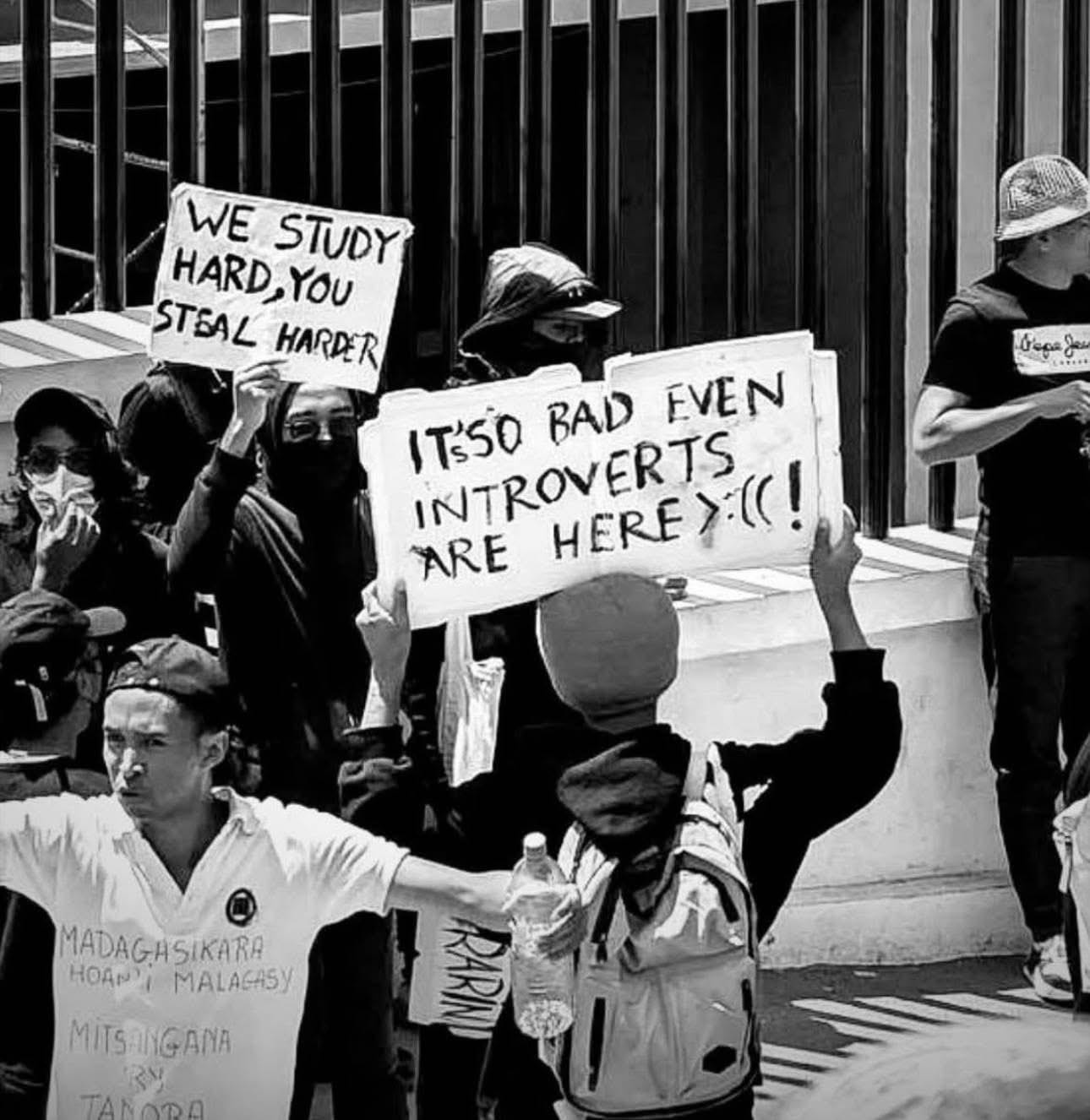
This Substack has become my go to source for updates on security issues in Africa. Great work!
Fantastic piece. Thank you for all these updates. I especially enjoyed the detail at the end about the Malagasy youth activists with Nepalese flags. What a beautiful and inspiring symbol of trans-regional solidarity.